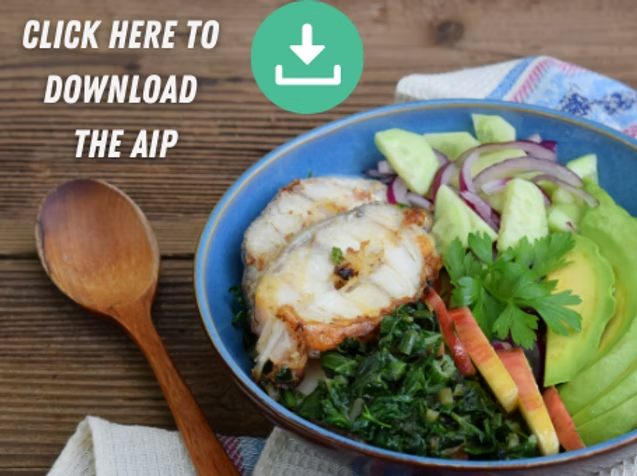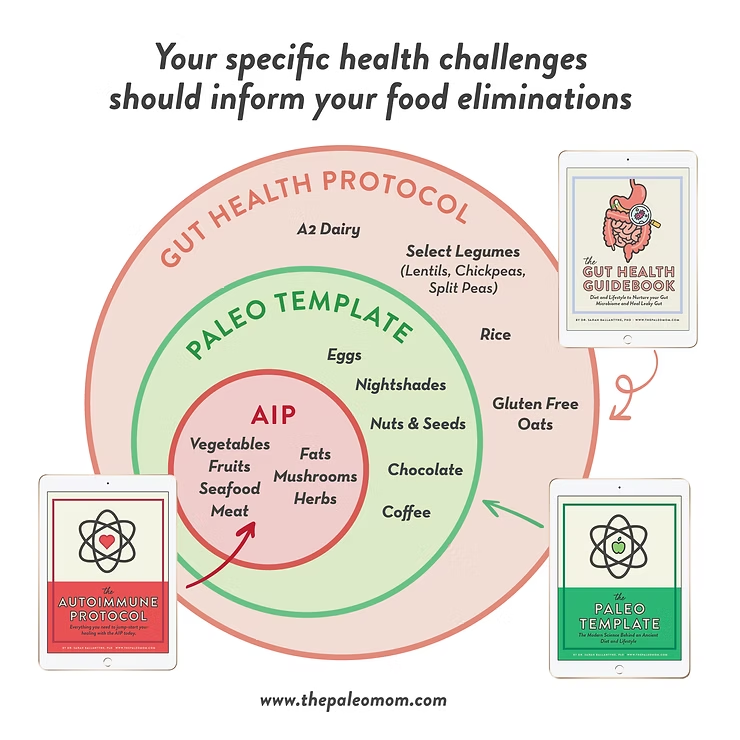Diet vs. Autoimmune Paleo Diet (AIP): Which One Should You Choose?
There are countless diets and lifestyle programs out there that promise to improve your health and well-being. However, after 23 years of clinical experience, I’ve learned that no single diet fits everyone. In this blog post, we’ll discuss the key differences between two popular diets: the paleo diet and the autoimmune paleo diet (AAP). By understanding the benefits and limitations of each, you can make an informed decision about which one is right for you.
The paleo diet and the autoimmune paleo diet (AIP) both focus on whole, nutrient-dense foods, and eliminate processed foods and refined sugars. However, the AIP is more restrictive than the paleo diet, eliminating additional foods that may trigger autoimmune reactions. Let’s take a closer look at the differences.
The Autoimmune Paleo (AIP) Diet
The autoimmune paleo diet (AIP) is a more restrictive version of the paleo diet, designed to eliminate additional foods that may trigger autoimmune reactions.
The AIP removes eggs, nightshades, nuts, and seeds from the diet, as well as other potential allergens and irritants.
Eliminating nightshades is particularly important because they contain lectins, which can cause inflammation in the body. For people who are sensitive to lectins, this can contribute to chronic inflammation and autoimmune conditions.
The Paleolithic (Paleo) Diet
The paleo diet is based on the idea that humans should eat foods that our ancestors ate before the advent of agriculture. The diet consists of whole foods like meat, fish, vegetables, fruits, nuts, and seeds. It eliminates processed foods, grains, legumes, and dairy.
On the paleo diet, you can still consume eggs, nightshades, nuts, seeds, chocolate, and coffee. While some people may be sensitive to these foods, they are generally considered to be healthy and nutritious.
Conclusion
If you’re looking to improve your health through dietary modifications, both the paleo diet and the autoimmune paleo diet can be effective options. However, the AIP may be a better choice if you suffer from autoimmune conditions or chronic inflammation. It’s worth experimenting with both diets to see what works best for your body. Keep in mind that there is no one-size-fits-all approach, so be open to making adjustments as needed.
Frequently Asked Questions (FAQ)
The Paleo diet focuses on whole foods like meat, fish, vegetables, fruits, nuts, and seeds while eliminating processed foods, grains, legumes, and dairy. The AIP diet is more restrictive, removing additional foods such as eggs, nightshades, nuts, and seeds to reduce inflammation and support autoimmune healing.
The AIP diet is especially helpful for people dealing with autoimmune conditions or chronic inflammation. By removing common food triggers like nightshades, nuts, and seeds, it gives the immune system a chance to calm down and may reduce autoimmune symptoms.
Yes, many people start with Paleo and then transition to AIP if they still experience inflammation or autoimmune flare-ups. Since AIP is more restrictive, it can serve as a deeper elimination diet to identify hidden food sensitivities before reintroducing foods gradually.













